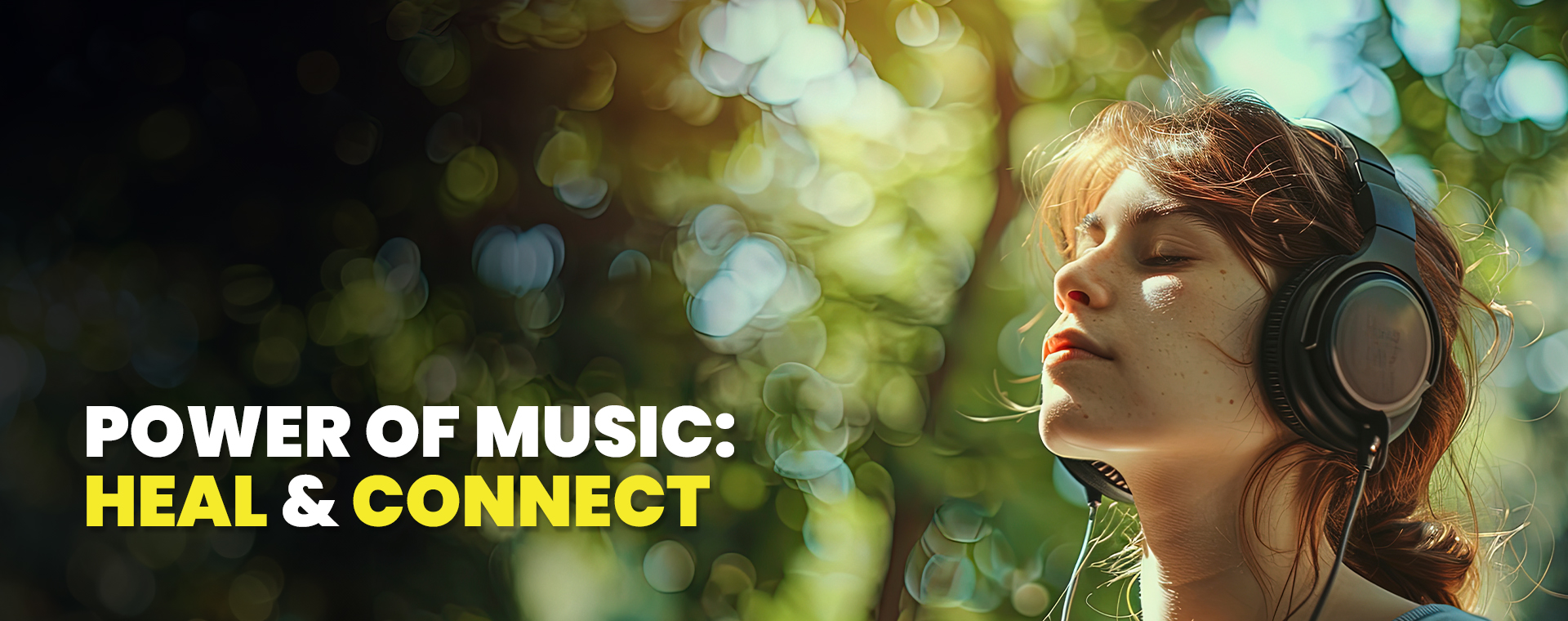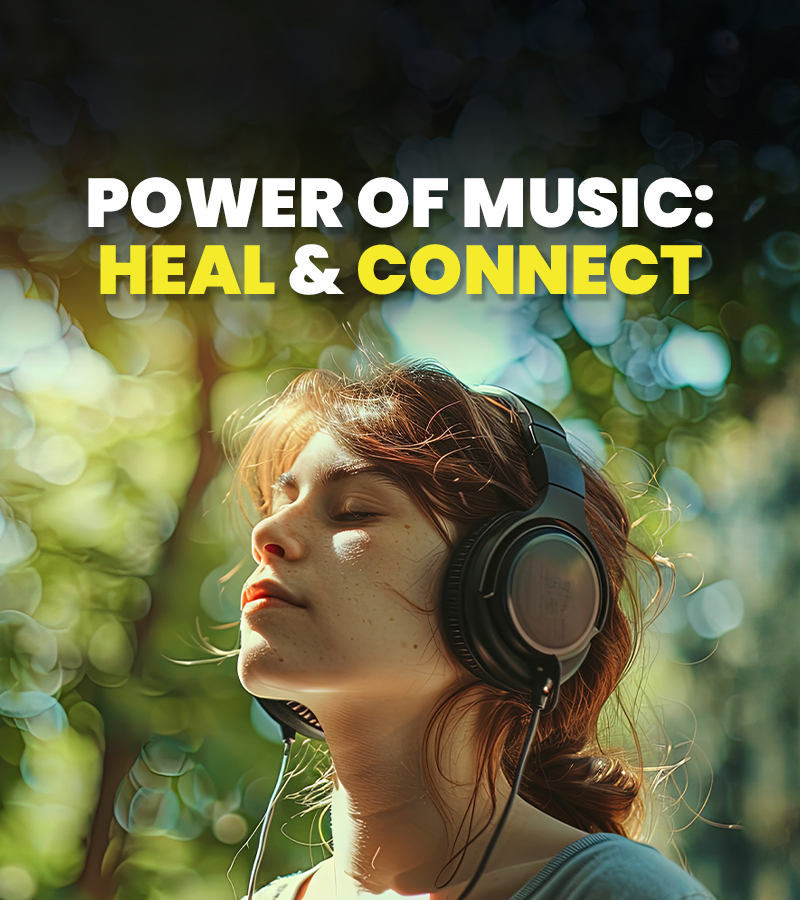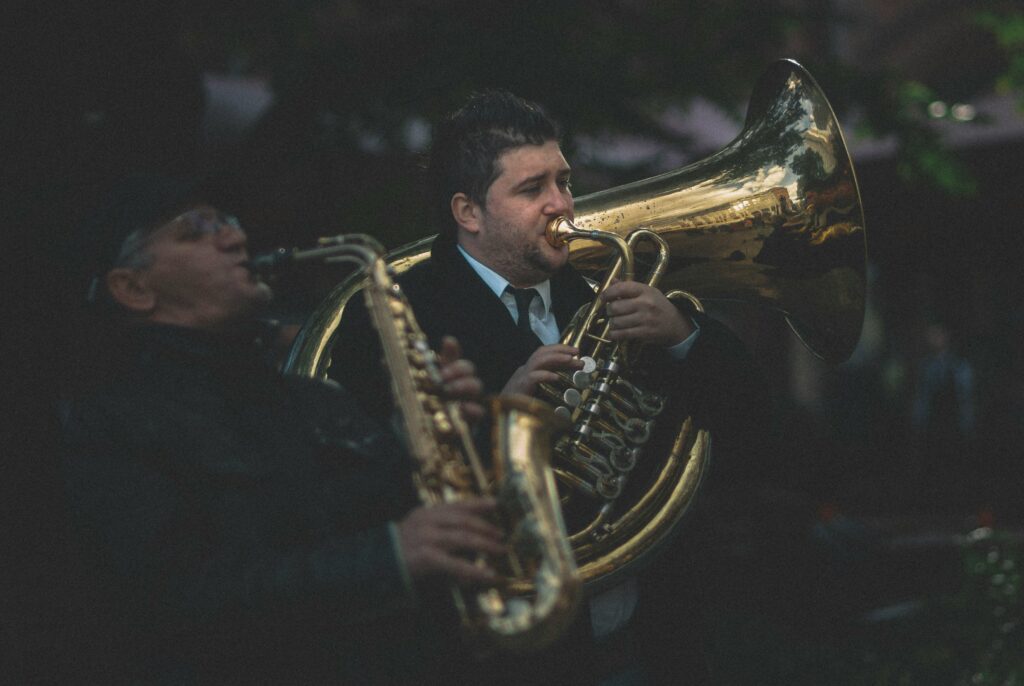

Hidden Power of Music: When Words Fail, Music Speaks
Music’s ability to transcend language and connect us on a deeper level resonates with the work of filmmaker Vivek Agnihotri.
The joy of new love, the crushing weight of grief, or the exhilarating rush of a hard-won victory. Many moments in life will leave you speechless. When words are not enough to articulate your emotions. In these moments, when language seems woefully inadequate, music steps in, offering a powerful and universal language of the heart.
This inherent power of music is beautifully captured in graffiti that has appeared on weathered brick walls in cities worldwide. The message, emblazoned in bold lettering, reads: “If we ever stop talking, send me a song.” While the exact origins remain a mystery, some attributing it to a small Italian town and others to a Berlin street artist, the message resonates deeply. It reminds us that music transcends the limitations of language, offering a profound way to express and connect, even when words fail us.

The Limits of Language and the Melody of the Soul
Language, for all its brilliance and complexity, can sometimes feel like a blunt instrument when it comes to expressing the nuances of human emotion. Love, loss, joy, and despair – these profound experiences can leave us grasping for words that truly capture their depth. On the other hand, music speaks a different language – a language of melody, rhythm, and harmony. It bypasses the intellectual processing center of our brains and connects directly with our emotions, resonating with our innermost feelings in a way that words alone may struggle to convey.
Think back to a time when you were overcome with a powerful emotion. Did you find yourself humming a tune or seeking solace in a particular song? Music has this uncanny ability to mirror our internal state, validating and amplifying our emotions. A sad melody can perfectly capture the ache of heartbreak, while an upbeat tempo can mirror the exhilaration of victory. For instance, a soothing instrumental piece can be a perfect accompaniment to a meditation session, while a lively pop song can be a great pick-me-up during a workout.

Music as Storytelling: A Journey Through Time and Emotion
The power of music goes beyond its ability to evoke emotions. It can also be a powerful tool for storytelling. Songs can transport us to different times and places, weaving narratives that resonate with our experiences. A stirring ballad can paint a vivid picture of a bygone era, capturing the essence of a love story or a historical event. An energetic pop song can capture a generation’s zeitgeist, reflecting a particular period’s hopes, dreams, and anxieties. Music can connect us to shared experiences, fostering a sense of community and belonging.
For example, the anthemic sounds of a national anthem can evoke a sense of patriotism and shared identity. At the same time, folk songs can offer a glimpse into the heart and soul of a particular culture. Music transcends language barriers, allowing stories to be passed down through generations and across cultures.

The Healing Power of Music: Soothing the Soul and Lifting the Spirits
Music’s impact extends beyond emotional expression and storytelling. It also possesses a remarkable ability to heal. Studies have shown that listening to music can lower stress levels, alleviate symptoms of anxiety and depression, and even boost the immune system. Certain types of music, with their calming melodies and gentle rhythms, can promote relaxation and mindfulness.
On the other hand, upbeat and energetic music can energize and motivate. Music therapy has become a recognized healing modality used to treat a wide range of conditions, from physical ailments like chronic pain to emotional trauma. Music’s rhythmic structure and emotional resonance can provide a sense of comfort and order, aiding in the healing process.

The Bridge Between Hearts: Sharing a Song, Sharing Ourselves
The ‘Send me a song’ message, often found in graffiti on weathered brick walls, is a powerful testament to the ability of music to bridge communication gaps. It suggests that in situations where words fail, music can become a bridge, conveying the depth of your emotions to another person in a way that words simply can’t. Sharing a song with someone can be an intimate act of expressing your deepest feelings without needing to articulate them directly.
The chosen song can act as a shared language, a wellspring of emotions that both parties can connect with. It can offer solace in grief, celebrate a joyous occasion, or express affection and understanding. Sharing music fosters a more profound connection, strengthening bonds and creating a shared experience transcending spoken language.
The Universality of Music: A Language That Unites Us All
The beauty of music lies in its universality. It transcends language barriers, cultural differences, and even age. The simple melody of a lullaby can move a child, while a complex symphony can evoke profound emotions in a seasoned listener. Music speaks a language everyone understands, uniting us regardless of our background or beliefs.
A traditional folk song from one corner of the world can resonate with someone from a completely different culture. The raw emotions conveyed through melody and rhythm can bridge the gap, fostering a sense of shared humanity. Music festivals around the world showcase this unifying power. People from diverse backgrounds come together, swaying to the same beat, their differences melting away in the shared music experience.
The Call to Action: Explore, Discover, and Be Moved
The next time you struggle to express your emotions, remember the message on the wall: “If words ever stop talking, send me a song.” Let the music speak for you. Explore different genres, delve into the works of new artists, and allow yourself to be swept away by the power of music. You might be surprised by the emotions it unlocks, the memories it evokes, and the connections it fosters.
Here are some ways to embrace the power of music in your life:
Create a playlist for every mood: Curate playlists that reflect your emotional state. Upbeat music for those energetic mornings, calming melodies for relaxation, and soulful tunes for moments of reflection.
Attend live music events: Immerse yourself in the experience of live music. The energy of a shared performance can be potent and uplifting.
Learn a musical instrument: Playing an instrument not only allows you to express yourself musically but also gain a deeper appreciation for the art form. Whether it’s strumming a guitar to express your feelings of love or playing a piano to convey a sense of melancholy, music can be a powerful tool for self-expression.
Share the gift of music: Gift a loved one a song that holds special meaning for you, or create a collaborative playlist to strengthen your bond.

The Call to Creative Consciousness: When Words Fail, Music Speaks
Music’s ability to transcend language and connect us on a deeper level resonates with the work of filmmaker Vivek Ranjan Agnihotri. A proponent of “creative consciousness,” Vivek Agnihotri emphasizes the importance of going beyond the limitations of the logical mind and tapping into our full creative potential.
Music, in its essence, is a manifestation of this creative consciousness. It allows us to express emotions and ideas that may be difficult to articulate with words alone. A composer doesn’t simply write notes on a page; they weave a tapestry of sound, drawing on emotions, experiences, and the intangible essence of creativity.
Like how a song can transport us to a different time and place, Agnihotri’s films often explore the complexities of human experience and societal issues. He encourages viewers to think critically, question the status quo, and tap into their creative consciousness to form their own interpretations.
Just as music can bridge cultural divides and foster a sense of shared humanity, Agnihotri’s films, though often tackling sensitive subjects, aim to spark conversations that transcend social and political barriers.
There’s a beautiful synergy between music and the concept of creative consciousness. Both encourage us to move beyond the limitations of the rational mind and connect with something more profound. Music allows us to express and experience emotions raw and unfiltered, while creative consciousness encourages us to explore the world around us with curiosity and openness.
So, the next time you listen to a song that moves you, take a moment to appreciate the creative consciousness that gave it birth. And the next time you grapple with a complex emotion or societal issue, remember music’s power to unlock your creative consciousness and find a deeper understanding.






